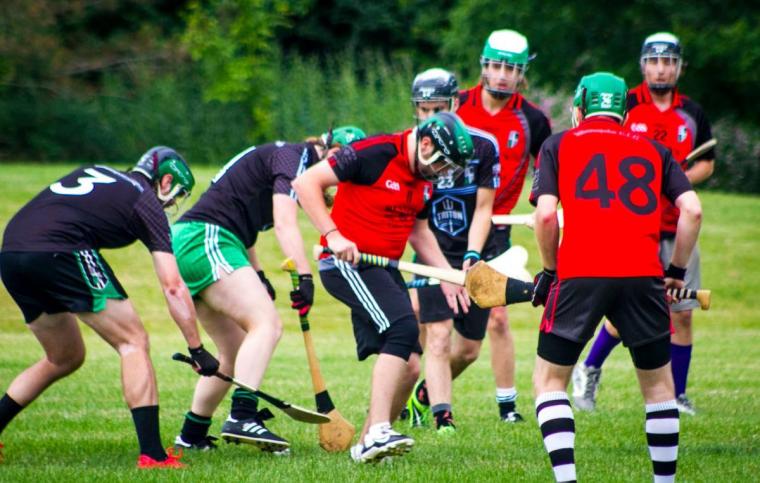
The Gaelic Athletic Association (World GAA), an Irish international amateur sporting and cultural organization focused primarily on promoting indigenous Gaelic games, has set a big goal: Olympic inclusion.
In late February, the organization revealed its roadmap, and has been making headlines ever since.
“The international governing body of the GAA is seeking recognition from the International Olympic Committee to extend its global reach as the ultimate goal in a long term plan,” noted reporters at Inside The Games.

The first step is to earn recognition from the IOC by gaining membership in organizations like AIMS (Alliance of Independent Recognized Members of Sports).
In order to achieve affiliation with AIMS, GAA will require acknowledgement from 60 international sporting federations.
“It is hoped that AIMS recognition can be achieved by 2026,” noted representatives of World GAA in a statement to reporters at The Irish Times.
World GAA announced the plans at the launch of an initial strategic plan for overseas games last week.
The organization would like to achieve IOC recognition after that. But GAA is playing the long game here; its ultimate goal, once it gets AIMS affiliation and IOC recognition, is to have three new sports accepted into the Olympics: Gaelic football, hurling, and camogie.
“It is important to acknowledge that this process is likely to take time and success is not guaranteed,” read a statement from the GAA as published in Irish Central. “Nonetheless, taking the first steps towards this goal is crucial for the GAA.”
The Strategic Plan 2024-2026 charts the strategic direction for the seven international units and 475 clubs that make up World GAA for the next three years. (The GAA fosters a number of clubs in Ireland, as well as in other countries; there are GAA clubs in the United States, Australia, Britain, Canada, China, continental Europe, and elsewhere, according to Wikipedia.) Within the United States, the affiliated organization is the U.S. Gaelic Athletic Association.
 And the organization has already offered international games; the first GAA World Games were played in Abu Dhabi in 2015. The next edition was played in Dublin in 2016 with subsequent editions to be played in Ireland every three years.
And the organization has already offered international games; the first GAA World Games were played in Abu Dhabi in 2015. The next edition was played in Dublin in 2016 with subsequent editions to be played in Ireland every three years.
But adding new sports to the Olympics is a process, rather than an event. Presently, the IOC has set a cap on the number of athletes permitted to compete in the Olympics, and the uptick in numbers that three new permanent team sports would present would be a tough hurdle for the GAA to cross.
Under the IOC’s Agenda 2020, each host city is allowed to suggest what are called “showcase sports,” meaning sports that can be presented at those Games, but perhaps not in future Games. (For example, baseball and softball were presented in Tokyo but will not be present in Paris, although they will be contested in Los Angeles.)
If Ireland were to host the Summer Olympic Games, it could theoretically propose Gaelic football, camogie and hurling as showcase sports; however, at this time, the country has no plans to throw its hat into the Olympic ring.
AIMS is not the only multi-sport organization with which the GAA could align; another group with similar membership and goals is Sport Accord, a global sports event organization governed by stakeholders representing the Olympic and non-Olympic International Federations.
Other similar organizations are the Association of IOC Recognized International Sports Federations (ARISF), Association of Summer Olympic International Federations (ASOIF) and Association of International Olympic Winter Sports Federations (AIOWF).

